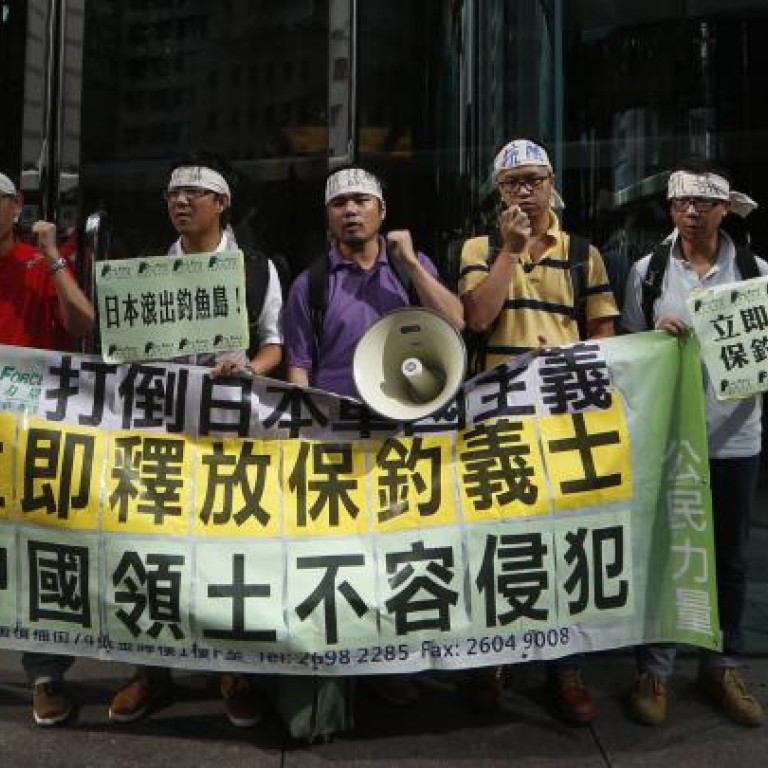
Diplomacy, not nationalism is way forward in island disputes
Nationalism has no place where territorial disputes are concerned. Sovereignty claims have to be resolved through diplomacy. Yet Chinese, Japanese and South Koreans have put common sense to one side in pressing their governments to be more forceful over contested islands in rich fishing grounds that may lie on oil and gas reserves. Landing, planting a flag or putting up a "for sale" sign do not lead to a solution; they are more likely to spark confrontation, tragedy or a crisis.
Hong Kong, mainland and Taiwanese protesters have once more found this reality in their annual quest to put flags on the Diaoyu Islands, known as the Senkaku chain by Japan. Most times over the years they have failed, their boat being turned back or blocked by Japanese navy vessels, but yesterday, they succeeded. In 1996, there was tragedy with the drowning of activist David Chan Yuk-cheung. Mission accomplished or not, though, the point is always missed: such adventures fail to achieve their goals.
That is also how South Korean President Lee Myung-bak's unprecedented visit last week to the disputed island of Dokdo, called Takeshima by Japan, has to be viewed. The first leader from his country to make the trip, he wanted to affirm Seoul's claim amid a perceived push for sovereignty by Tokyo. South Koreans fired by patriotism who swam there this week to plant a flag had the same intention. For their troubles, all they have done is worsen relations.
Upcoming leadership changes have not helped. China's political powerbrokers are in the final throes of choosing leaders for the next decade and campaigning is under way in South Korea for presidential polls in December. Nationalism is seen as a way of winning popular support and the territorial claims are ideal focal points. The trend is especially noticeable in Japan where the opposition Liberal Democratic Party, with a slim lead in opinion polls over Prime Minister Yoshihiko Noda's Democratic Party of Japan, is pushing for dissolution of parliament that would lead to a general election.
Lee's trip infuriated Japan, which withdrew its ambassador from Seoul and postponed an annual bilateral meeting of finance ministers. Worse is likely to come amid rising Japanese nationalism. That could also harm ties with China, which are similarly delicately poised. Noda, trying to head off a bid by nationalist Tokyo Governor Shintaro Ishihara to buy the privately owned Diaoyus, instead wants the government to purchase them for the nation.
Activists who go to disputed islands risk sparking diplomatic or military confrontations. Governments turning to or encouraging nationalism over sovereignty claims are making a mistake. There is only one way to calm waters: through dialogue.

